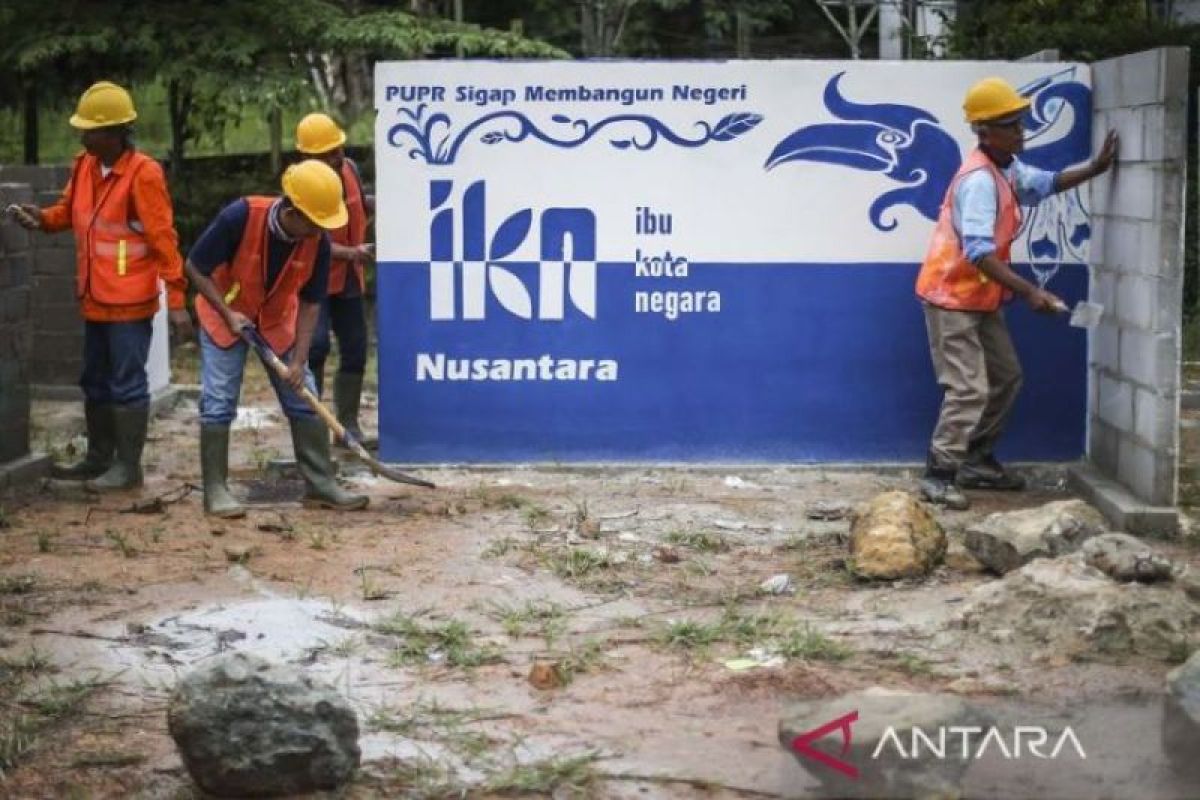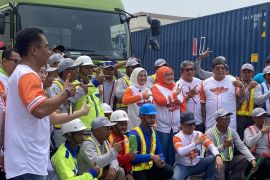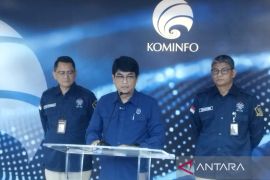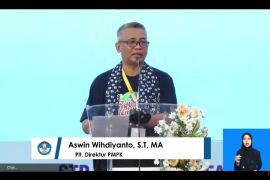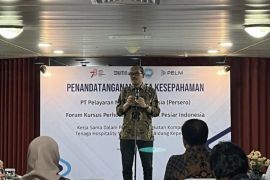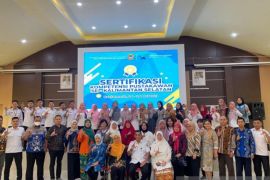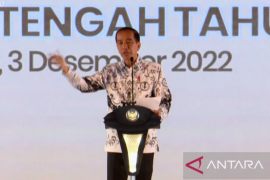To achieve this goal, there is a need to develop human resources, especially people living around the IKN construction project site.
According to Public Works and Public Housing Minister Basuki Hadimuljono, preparing reliable and competent human resources for the construction of the new capital is a priority for his ministry.
"IKN is an opportunity, both technical and non-technical. (It is a) Technical (opportunity) because we are constructing the infrastructure with new technologies," he said.
The IKN construction project needs competent human resources who understand the basic principles of the construction of a smart city and have sharp analytical skills for resolving problems related to smart city development.
This is in line with the initial design of Nusantara as a smart forest city—one that is sustainable, a driver of Indonesia's economy in the future, and a symbol of national identity.
The Public Works and Public Housing Ministry has also emphasized the importance of maintaining quality, aesthetics, and environmental sustainability in the infrastructure development of the new capital.
The goals and requirements for IKN construction highlight the need for quality human resources that have knowledge of sustainable technologies.
So what are the efforts that the government is making to train human resources around the IKN location to support the new capital’s construction and improve the competency of workers involved in construction?
Construction training
To support the construction of Nusantara, the Public Works and Public Housing Ministry is providing training and developing construction workers living around the new capital site and in other regions of Indonesia.
Based on the ministry's data, it trained 9,796 construction workers in 2022, surpassing the target of 7,100 workers.
Ministry Spokesperson Endra S. Atmawidjaja said that the training was divided into several levels, starting from the level of construction contractors to that of operational workers. The ministry provided all types of training needed for the IKN construction project.
The ministry recruited people from areas around IKN, the Balikpapan area, and other areas in East Kalimantan.
The background of the participants involved in the training varied, with some coming from vocational schools, polytechnics, and universities, and some being state civil apparatus from the East Kalimantan area.
The training was held in two modes: online training, such as the Building Information Model (BIM) training, and practical training, such as heavy equipment operator and construction training.
For 2023, the ministry is targeting to train 8,500 people for the IKN construction project. The targeted participants are spread in four regional construction service centers (BJKW), namely Region III BJKW, Region IV BJKW, Region V BJKW, and Region VI BJKW.
The Region III BJKW, which includes Banten, Jakarta, and West Java, is targeting to train two thousand construction workers for the IKN construction project. The Region IV BJKW, which includes Central Java, Yogyakarta, East Java, Bali, West Nusa Tenggara, and East Nusa Tenggara, is also aiming to train two thousand workers.
Meanwhile, for the Region V BJKW, which includes West Kalimantan, Central Kalimantan, East Kalimantan, South Kalimantan, and North Kalimantan, the target has been set at 2,500 workers.
As for the Region VI BJKW, which includes North Sulawesi, Gorontalo, Central Sulawesi, West Sulawesi, Southeast Sulawesi, and South Sulawesi, the target is two thousand workers.
Improving competency
The training of IKN construction workers is not only aimed at meeting the need for workers for the construction, but is also a part of the government's effort to improve the competency of construction workers.
By taking part in training, the skills of the construction workers are expected to improve, considering that the human resources that are involved in the IKN construction project are required to meet a high competency standard.
After the workers finish the training, their names will be recorded in an information system or a database that can be accessed by contractors and consultants so that they can be recruited.
The Public Works and Public Housing Ministry requires contractors and consultants, both domestic and international, who are involved in the construction of IKN to recruit local workers who have been trained.
This obligation is in line with the ministry's efforts to optimize the domestic component level (TKDN) of the IKN construction project.
The strategy that the ministry is taking includes the use of domestic construction workers, applicators, materials, and business entities. In addition, service providers also need to ensure their employees are from Indonesia.
In relation to the TKDN, the ministry is cooperating with the Industry Ministry, which has the authority to issue the TKDN certification.
The essence of the new capital city’s development, in line with President Joko Widodo's vision, is, indeed, not only to relocate the capital physically to Kalimantan island, but also to develop and improve the competency of the community around the IKN location and across the country.
This is evident from the efforts to train human resources that the Ministry of Public Works and Public Housing is making, which are not only aimed at meeting the need for construction workers, but also at encouraging Indonesian construction workers to level up their competencies and become competitive workers.
Related news: Balikpapan-IKN Nusantara toll road to be ready by 2024-end: Widodo
Related news: Indonesia's DPR highlights IKN development to Hungarian Parliament
Editor: Rahmad Nasution
Copyright © ANTARA 2023
